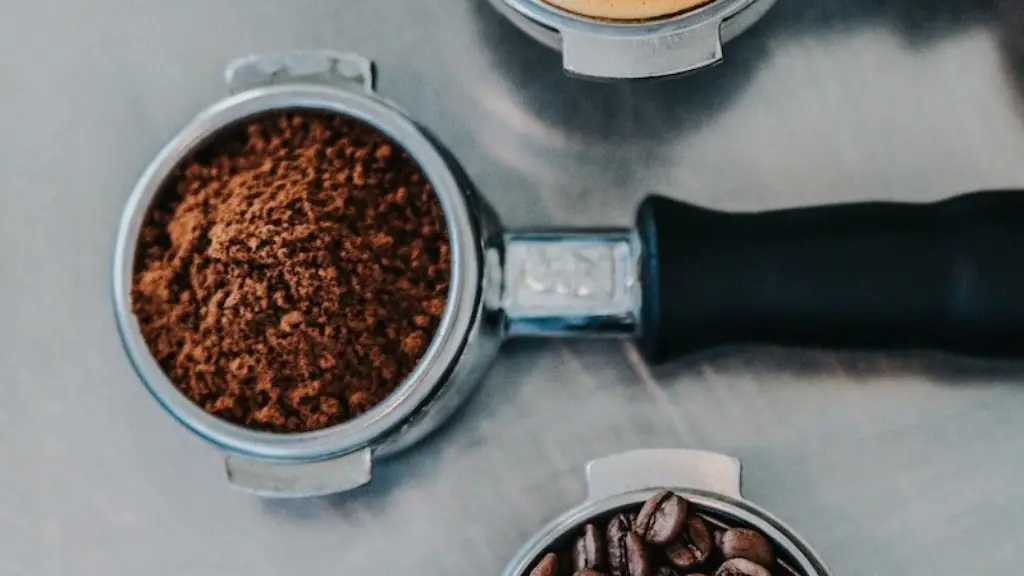Working out and caffeine are two words which often go hand-in-hand. Coffee is the world’s most popular stimulant. Scientists believe caffeine may help to improve performance, making workouts easier. But can you drink coffee while working out?
Yes, you can drink coffee while working out. In fact, research suggests that caffeine can benefit people during a workout, helping them to achieve higher intensity by boosting their energy levels. Caffeine has been used as a supplement for athletes for many years now and is found in a variety of different products such as sports drinks, energy shots and even pre-workout supplements.
The International Society of Sports Nutrition recommends that consuming caffeine before exercise can improve performance by increasing an athlete’s ability to cope with fatigue. Studies have also found that caffeine can help with improved endurance, focus and alertness, which may result in a higher intensity workout.
Despite the potential benefits, drinking coffee while working out is not recommended for everyone. Those with high blood pressure or other health issues should consult with a doctor before taking caffeine before exercise. Additionally, some people may experience an upset stomach or lightheadedness when exercising with caffeine. It is important to listen to your body and be aware of any adverse reactions.
In order to make the most of working out while drinking coffee, it is important to do so in moderation. Drinking too much coffee can quickly lead to over-stimulation. This can cause an increase in heart rate, which can be dangerous. It is recommended to limit your caffeine intake to 150mg per day. This is equal to 17oz (2 large cups) of brewed coffee.
Drinking coffee while working out can provide many benefits, from improved alertness to better performance. However, it is important to be mindful of your dosage to avoid any adverse reactions and to ensure that you get the most out of your workout. Enjoy your coffee, but remember to do so in moderation.
Benefits of Caffeine on Working Out
The effects of caffeine on the body are well-documented. Caffeine acts as a stimulant, providing an energy boost and improved alertness. Research suggests caffeine can enhance exercise performance, especially when taken before a workout.
Research published in the European Journal of Sport Science supports this. The study found that caffeine could increase sports performance by reducing fatigue, improving concentration and increasing endurance. Participants in the study who consumed caffeine before exercising experienced improved performance, which was attributed to the stimulatory effects of caffeine.
In addition to improved performance, caffeine can also help to enhance mood. Studies have found that caffeine can increase feelings of happiness and wellbeing after exercise. This can be beneficial for mental health, as exercise can help to reduce symptoms of depression and anxiety.
While the benefits of caffeine on working out are clear, it is important to only consume the recommended amount of caffeine per day. Too much caffeine can lead to adverse effects such as nausea, jitteriness and insomnia. It is recommended to limit your daily caffeine intake to 400mg per day. This is equal to approximately four 8oz cups of brewed coffee.
What Are the Risks of Drinking Coffee Before Working Out?
Drinking coffee before a workout can provide many benefits, but it is important to be aware of the risks. Caffeine is a stimulant and consuming too much can lead to side effects such as jitters, palpitations, nausea, dehydration and insomnia.
It is important to be aware of the effects that caffeine can have on the body. Studies have found that caffeine can increase heart rate and blood pressure, which can be dangerous for those with existing heart conditions. Additionally, caffeine can have an effect on blood sugar levels and make them drop. This can lead to dizziness and low energy levels, which is counterproductive when exercising.
The diuretic effect of coffee is also something to consider when deciding whether to drink coffee before working out. Coffee can make you urinate more often and can result in dehydration, which can be dangerous when exercising. It is important to stay hydrated when working out, so make sure to consume plenty of water throughout your workout.
Caffeine can also affect sleep, which is a vital component of any workout routine. The energizing effects of caffeine can make it harder to fall asleep, leading to poor sleep quality. This can have a negative effect on recovery and performance. It is important to take into consideration when deciding when to drink coffee. The recommended time is up to 4 hours before a workout.
How Much Coffee to Drink Before Working Out?
The amount of coffee you should drink before working out can vary from person to person. A good rule of thumb is to stick to 2–4 ounces of coffee before a workout. This is equal to about one 8-ounce cup of brewed coffee. It is important to be aware of the effects of caffeine on your body, as even a small amount can have a significant effect.
It is important to listen to your body and be aware of how your body reacts to caffeine. Everyone’s body responds differently to caffeine, so be aware of any upset stomachs, headaches or jitters that can occur. If you experience any of these symptoms, it may be best to avoid caffeine before a workout.
Consuming too much caffeine before a workout can also have an adverse effect. Too much caffeine can lead to overstimulation and make it difficult to focus. This can lead to poor performance and increased fatigue. It is best to stick to a moderate amount of caffeine before a workout to avoid the negative effects.
Can Working Out Help With Caffeine Addiction?
Excessive caffeine consumption can lead to caffeine addiction, and working out can help to reduce the addiction. Exercise can reduce cravings for caffeine by increasing endorphin levels, which are natural feel-good hormones in the body.
In addition, exercising can give you a boost of energy and alertness naturally. This can make it easier to reduce your caffeine intake and can help to break the habit of relying on caffeine for energy. As an added benefit, exercise can also help to reduce stress levels, which can make it easier to break the habit.
Caffeine is also a diuretic, meaning it can cause dehydration. This can have an adverse effect on your performance and can be dangerous during exercise. Regular exercise can help to increase your water intake, reducing the risk of dehydration due to caffeine consumption.
In conclusion, exercise can be a useful tool to help you reduce caffeine consumption and break the habit of caffeine addiction. If you are looking to break your dependence on caffeine, it is important to listen to your body and be aware of the effects of caffeine. The key is to remember to drink coffee in moderation and to make sure to stay hydrated.
How Drinking Coffee Can Enhance Workouts
Drinking coffee before a workout can help to enhance performance and improve alertness and focus. Caffeine is a stimulant, meaning it can increase energy levels and reduce fatigue. Studies suggest that caffeinated beverages can improve exercise performance by increasing alertness, endurance and focus.
In addition to the energy benefits, drinking coffee before a workout may also help to reduce muscle pain. Studies have shown that caffeine can reduce perceived muscle pain and can improve reaction time during exercise. This can make exercise more enjoyable, helping to make it easier to stay motivated.
Caffeine can also help to increase fat burning during workouts. Studies have found that caffeine can increase the amount of fat burned during an exercise session. While this can help to improve performance, it is important to remember that regular exercise and a balanced diet are the key to long term weight loss.
It is important to listen to your body when deciding whether to consume caffeine before a workout. Some people may be sensitive to caffeine and may experience adverse reactions such as an upset stomach or lightheadedness. Additionally, it is important to make sure to stay hydrated when consuming caffeine before a workout.
In conclusion, drinking coffee before working out can provide many benefits, from improved alertness to better performance. However, it is important to only consume caffeine in moderation to avoid any adverse reactions and to ensure that you get the most out of your workout. Enjoy your coffee, but remember to do so in moderation.





